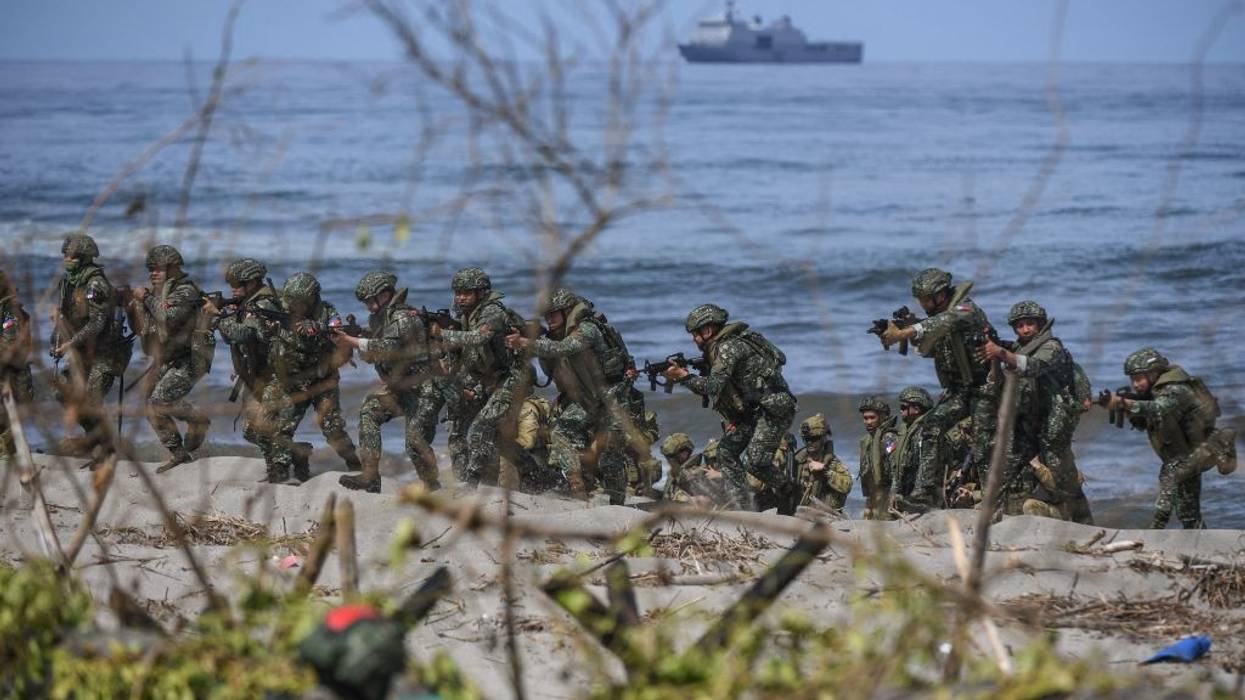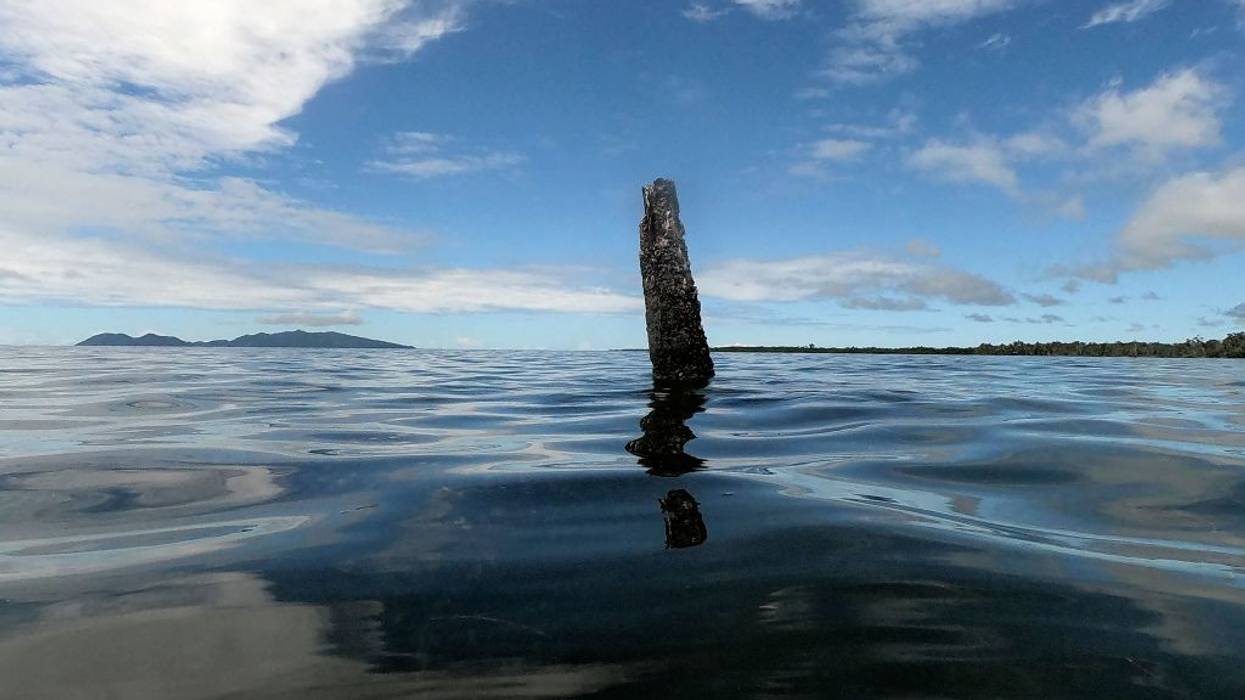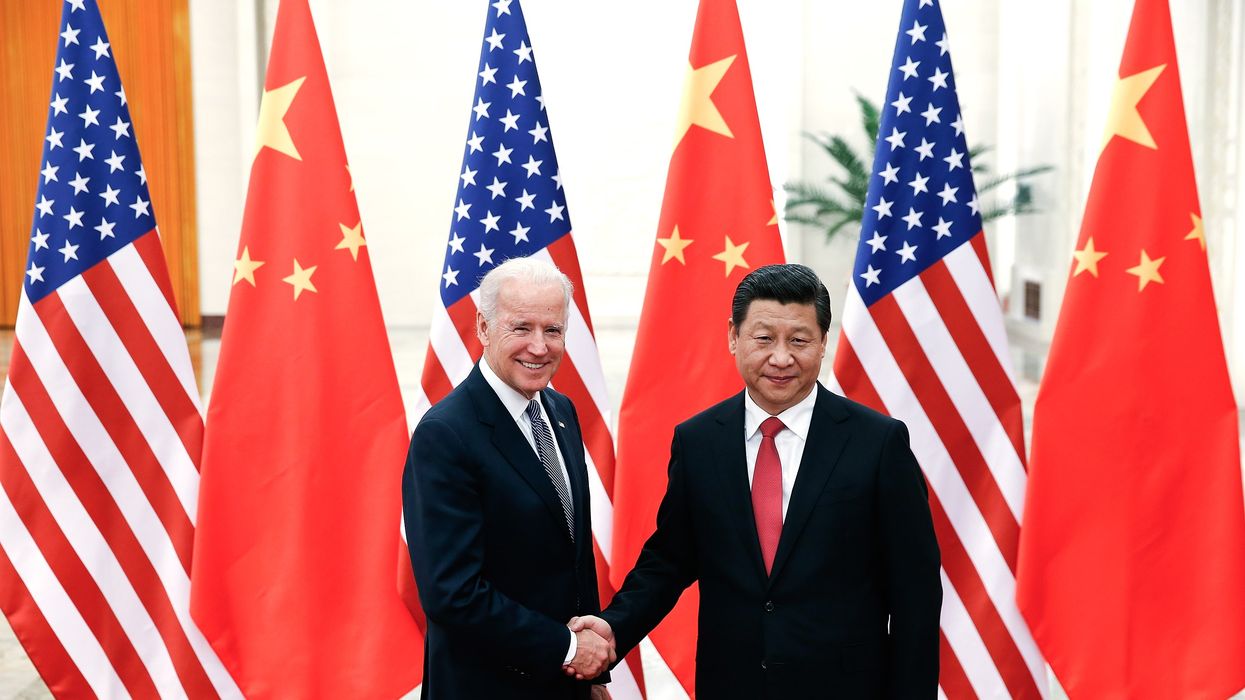“Both sides,” of course, bear responsibility for the new Cold War, just as all great powers share most of the responsibility for failing to act decisively on global warming. Given the disproportionate power and imperialistic history of the United States, however, it is this country that bears most of the blame, in both cases. So it is, first and foremost, this country’s policies that we have to change. Even were this not the case, though, the principle that Noam Chomsky has enunciated would apply: It is the dangers presented by their own states, not enemy states, that citizens have a duty to organize against. Westerners should, primarily, criticize their own governments, which they can hope to influence. They can’t meaningfully influence China or Russia.
Two questions pose themselves: First, is China indeed a threat, and if so, to what, precisely? Second, is confrontation the best means to deal with whatever threat China represents?
The question arises, then, as to how best to steer America from a course of aggression to one of cooperation and conciliation. That is, how can we build an antiwar movement? A crucial task, evidently, is to delegitimize the direction of policy vis-à-vis China that began under Trump and has continued under Biden, the pursuit of military provocation and economic warfare. This entails a relentless focus on refuting the reasons Washington gives to justify its aggressive posture.
Americans are inundated with the message that China is a “threat,” and that for this reason it must be confronted. They hear it from every major media outlet—CBS, Fox, The New York Times, The Washington Post, etc. This message reflects the attitude of Washington, which obviously views China as a major threat—to American “security,” “national security” (as stated for example in the 2022 National Defense Strategy). Two questions pose themselves: First, is China indeed a threat, and if so, to what, precisely? Second, is confrontation the best means to deal with whatever threat China represents?
National Security
The concept of “national security” has been thrown around promiscuously for generations, not only in politics and the popular media but even the international relations scholarship. Rarely is it noticed that the term, unless clarified, is meaningless, or that its meaning varies by context. Was George W. Bush protecting America’s “security” by invading Afghanistan and Iraq, thereby massively increasing terror, and terrorist recruiting, across the Middle East? Is the government protecting Americans’ present and future security by subsidizing the fossil fuel industry, thus accelerating global warming? Prima facie, the most obvious meaning of security is something like Franklin Roosevelt’s Four Freedoms: freedom of expression, freedom of religious belief, freedom from want, and freedom from fear. But this kind of security for the average person—is this a high priority of the U.S. government? Is it what is meant by the mantra that China is a security threat? Is China responsible for the economic insecurity of most Americans, or their housing insecurity, or their fear of mass shootings, or their fear of getting sick because they won’t be able to pay medical bills?
“Security,” therefore, apparently doesn’t mean the security of Americans, at least not of the vast majority. The government could invest $800 billion in, say, upgrading infrastructures of public health and housing—you know, actual security infrastructures—rather than upgrading the military and thereby encouraging a dangerous arms race with China. Realist scholars like John Mearsheimer propose an alternative definition: Security in the technical sense means the state’s very survival in an anarchic system of international relations. Potential rivals exist everywhere, so states have to be prepared for military confrontations. Their need to survive, therefore, has a corollary: “Great powers [seek] to maximize their relative power,” Mearsheimer writes, “because that is the optimal way to maximize their security. In other words, survival mandates aggressive behavior,” in order that the state can defend itself against a potential aggressive rival. The ultimate goal in this dog-eat-dog security competition is to be a regional hegemon that can trounce any opponent, and then to prevent any other country from becoming a rival hegemon.
Only through its arsenal of nuclear weapons can China even conceivably threaten the U.S., which means that the most rational American policy is not to provoke a nuclear arms race but to try to phase out all nuclear weapons worldwide.
This “realist” reasoning might sound plausible, although one can see right away that it tends to rationalize and legitimize militarism (as shown by Mearsheimer’s judgment that the brutal expansionism of Germany, Japan, and the Soviet Union in the 1930s and ’40s was quite rational, for they were only trying to survive!). Can it really be maintained, however, that contemporary China threatens the very survival of the United States? Only through its arsenal of nuclear weapons can China even conceivably threaten the U.S., which means that the most rational American policy is not to provoke a nuclear arms race but to try to phase out all nuclear weapons worldwide. This would certainly increase America’s security. Since the new Cold War only exacerbates the nuclear threat, the U.S. government’s motivation for it, contra Mearsheimer, cannot be to ensure its own survival. So, if “security” concerns are, as is often said, what motivate America’s confrontational policies, we need another definition of that perplexing word.
The work of earlier realists such as Hans Morgenthau, as well as Marxists, provides the answer: In the absence of genuine military threats to a country (like the very fortunate United States since 1812), security is nothing but a euphemism for state power and prestige. The struggle for power as an end in itself is what motivates all ruling elites and governments. Economic, military, geopolitical, ideological, cultural power—even a hegemon will insatiably strive for more power, total power, crushing all dissent everywhere to the extent possible. “A political policy,” says Morgenthau, “seeks either to keep power, to increase power, or to demonstrate power.” Whether this is because of human nature, as Morgenthau argues, or the inevitable dynamics of powerful institutions, or the fact that only power-hungry people rise to the top, it is a general principle.
Since Americans rarely look favorably on government as such, opponents of the new Cold War would do well to constantly emphasize that its primary purpose is to defend and assert the hegemonic power (i.e., “national security”) of the U.S. government, together with certain segments of the business community—for example, defense contractors—that are closely interlinked with government. Constant exposure of the belligerence of U.S. policy, as contrasted with China’s relative restraint, would undermine public support for confrontation. When U.S. officials, in characteristic fits of mind-boggling hypocrisy, charge that China is threatening global peace and stability, one might quote Kishore Mahbubani’s article in Harper’s Magazine entitled “What China Threat?”:
Quite remarkably, of the five permanent members of the U.N. Security Council (China, France, Russia, the United States, and the United Kingdom), China is the only one among them that has not fired a single military shot across its border in thirty years, since a brief naval battle between China and Vietnam in 1988. By contrast, even during the relatively peaceful Obama Administration, the American military dropped twenty-six thousand bombs on seven countries in a single year. Evidently, the Chinese understand well the art of strategic restraint.
China is indeed a threat—to the dominance of a small American elite, centered in finance, government, and tech, over world politics and the world economy. As Deborah Veneziale explains in Washington’s New Cold War, much of the hostility of America’s capitalist class (or particular sectors of it) to China results from the difficulty of accessing the Chinese market: “U.S. tech giants such as Google, Amazon, and Facebook have virtually no market in China, while companies like Apple and Microsoft face increasing difficulties… [These companies] yearn for a change to the political system in China that would open the door to the country’s massive market, and major actors in this sector are actively working to advance Washington’s hostile foreign policy.” Finance, likewise, is unhappy with China’s capital controls, which restrict capital flows into and out of the country. George Soros expressed the frustration of many financiers when he tweeted in January 2022 that “Xi Jinping is the greatest threat that open societies face today.”
Aside from grievances due to China’s non-neoliberal character, a significant reason for Washington’s strategy of aggressive confrontation is simply that expansion of U.S. military capacity is an end in itself, for which pretexts have to be sought. As Morgenthau might say, such a policy demonstrates (and can help keep) power, which is the whole point of being a government. It is also the kind of thing that companies like Lockheed Martin, Raytheon, Boeing, Northrop Grumman, and BAE Systems will benefit from and lobby for. It’s hardly a secret that there is a revolving door between the Pentagon and private military contractors: Even Secretary of Defense Lloyd Austin was on the board of directors of companies like Raytheon before Biden appointed him. Cold Wars are in the interest of very wealthy corporations and very powerful government bureaucracies, which can use them to justify larger congressional appropriations and expansions of their power.
China Will Constrain the U.S. Empire
Returning to “security” risks—risks to the security of the global dominance (“leadership” is the preferred term) of U.S. elites—it is true that as China’s economy grows, its geopolitical power will necessarily grow as well, thus challenging U.S. “leadership.” There is some sense, therefore, if not much justice, in Biden’s attempts to slow China’s economic growth by restricting exports of cutting-edge semiconductor chips and other high-tech equipment. Whether such restrictions are in the interest of American consumers, or of humanity as a whole, is much more debatable. In any event, to partially delegitimize the trade wars that the U.S. is escalating, and which may well become quite harmful to Americans, it suffices for dissenters to note at every opportunity that these wars’ entire purpose is to hurt China’s economy so it will have more trouble challenging the global dominance of America’s tech industry and the U.S. government. Most Americans are smart enough to know that their interests and those of the government don’t usually coincide.
Indeed, that’s the crucial question to keep asking in public forums: Why should we hate and fear China so much? It makes a lot more sense to hate and fear our own government, together with the corporate sector with which it is fused. China caused none of the vast human suffering, the desolation of hundreds of millions of lives over two generations, that has brought American society to its knees; it merely benefited from the decisions by corporate executives to relocate factories abroad, where it was easier to exploit labor at a higher rate. The fight of working Americans is not with China.
But what about China’s theft of intellectual property? What about its military threat to Taiwan? What about that terrifying balloon that floated into U.S. airspace? Surely all this justifies a new Cold War that could last a generation or more! Well, in fact, as every reasonable person knows, the right way to deal with whatever genuine threats China might pose is to pursue diplomacy, preferably through one of the multilateral institutions that exist for precisely such cases as these, including the United Nations and the World Trade Organization. When the U.S. rejects the obvious path of diplomacy in favor of military escalation and overblown rhetoric, it is clear that it’s merely seizing on real or imagined provocations as pretexts for pursuing some other goal it prefers not to publicize. This was clear when the Bush administration flailed around for excuses to invade Iraq—from weapons of mass destruction to ousting Saddam Hussein to building a wondrous new democracy—and it’s clear now, as the Biden administration orchestrates the wholly unnecessary military and economic containment of China.
Maybe a forced reining in of the U.S. empire could be good for Americans. Whatever constrains the power of the elite is likely to expand the power of the majority.
In fairness, it is perfectly natural for a hegemonic government, used to getting its way and running rampant over most of the world, to try to prevent the emergence of a peer competitor. As Marco Rubio said plaintively in a moment of refreshing candor some weeks ago, “Brazil cut a trade deal with China. They’re now going to do trade in their own currencies, get right around the dollar. They’re creating a secondary economy in the world, totally independent of the United States. We won’t have to talk about sanctions in five years, because there will be so many countries transacting in currencies other than the dollar that we won’t have the ability to sanction them.” From a superpower’s point of view, these are major crimes, the worst crimes possible. To constrain the ability to bully and browbeat that the U.S. has enjoyed since the late 1940s is totally unforgivable.
But the American people should question whether such a threat to their government’s power is also a threat to them. Maybe a forced reining in of the U.S. empire could be good for Americans. Whatever constrains the power of the elite is likely to expand the power of the majority. Those who favor peace, in any case, should welcome the emergence of a new superpower that can challenge the policies of the most warmongering country on earth, such as by brokering peace agreements the United States refuses to. However authoritarian China is internally, its role in the world might end up being relatively constructive.
This is especially the case given that, in its search for support among other countries and peoples, it can’t appeal to any democratic ideology it supposedly represents, as the U.S. at least rhetorically can. To win moral authority, China has to actually deliver rather than merely preach.
In the end, then, China’s rise poses a straightforward security threat: It threatens the security of the old order, the Washington-directed, neoliberal, war-as-a-first-resort order. It threatens to bring about a more multilateral world, with less impunity for America’s crimes and more recourses to which victims can turn. People everywhere—except the West’s power centers—should cheer this fact.




